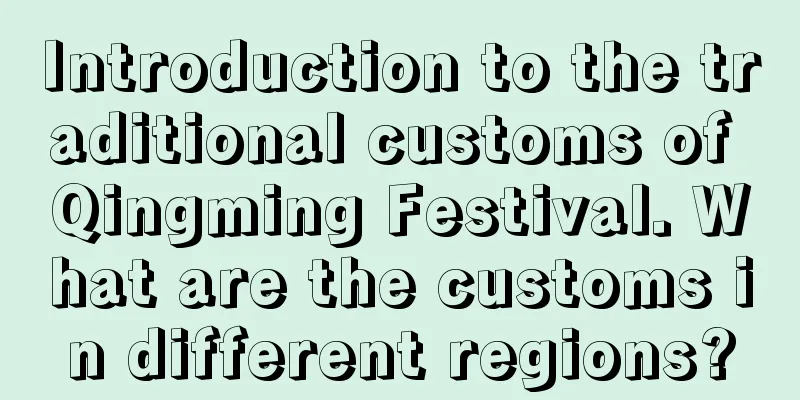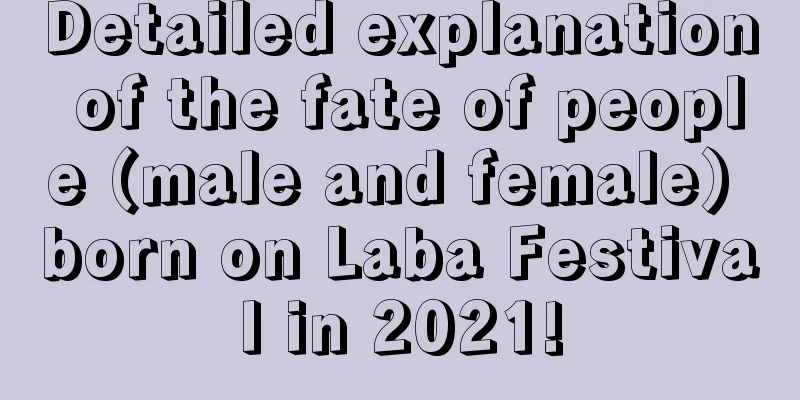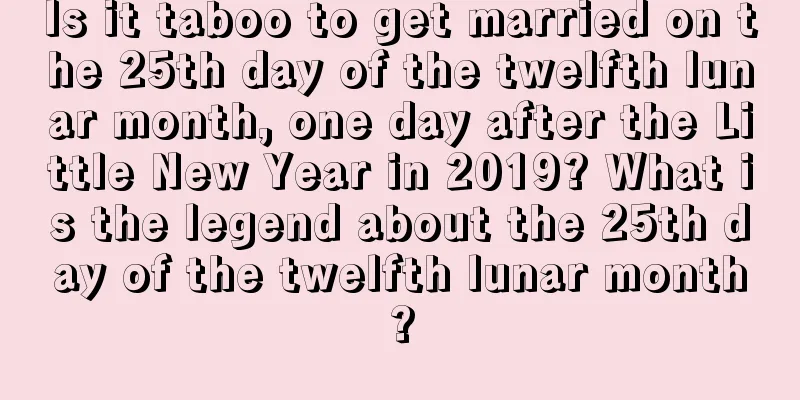Introduction to the traditional customs of Qingming Festival. What are the customs in different regions?

Every festival has its own traditional customs, but not everyone knows these customs. So, let’s take a look at the traditional customs of Qingming Festival and what are the customs in different regions? As we enter the second month of the lunar calendar, the weather begins to gradually warm up and everything becomes full of life. Various articles on Shuimoxiansheng.com’s special topic for February 2021 of the lunar calendar have been updated, so stay tuned!Introduction to the traditional customs of Qingming Festival1. Go outingThe Chinese nation has had the custom of outing on Qingming Festival since ancient times. In ancient times, outing was called "Tanchun" or "Xunchun" which means a spring outing, also known as "Tachun". Generally refers to taking a walk in the suburbs in early spring. 2. Flying a kite Kites are also called "paper kites" or "kites". Flying kites is a favorite activity among people during the Qingming Festival. A kite is a kind of flying vehicle that uses only aerodynamics and is made by pasting paper or silk on a bamboo frame and then flying into the sky by pulling a long string tied to the frame. During the Qingming Festival, people set off fireworks not only during the day but also at night. 3. Tomb sweeping and ancestor worship Tomb sweeping during Qingming Festival is called "tomb sacrifice", which is called "respect for the ancestors". Ancestor sweeping is a way to remember the ancestors, and the custom has a long history. 4. Planting willows During the Qingming Festival, Chinese people have the custom of planting willows. There are three common theories about the origin of the custom of planting willows during Qingming Festival. Some experts believe that the custom of planting willows is to commemorate Shennong, the ancestor of agriculture who "taught people how to farm." 5. Tug of War Tug of war was called "pulling hook" and "hooking strong" in the early days, and it was called "tug of war" in the Tang Dynasty. It is said that it was invented in the late Spring and Autumn Period, became popular in the army, and later spread among the people. 6. Swing Swinging is one of the customs of Qingming Festival in ancient China. Wang Renyu of the Five Dynasties wrote in The Remaining Stories of Kaiyuan and Tianbao that "During the Cold Food Festival, the Tianbao Palace erected a swing and had the concubines play and have fun. The emperor called it the play of the half-immortals, and the people in the capital called it that as well." Wen Yanbo, the prime minister of the Song Dynasty, wrote in his poem Passing by Dragon Gate on the Cold Food Festival that "the willow trees by the bridge hang down green threads, and the swings stand in a row with colorful ropes. 7. Cockfighting In ancient times, cockfighting was popular during the Qingming Festival. It started from the Qingming Festival and lasted until the summer solstice. 8. Shooting the willow Shooting willow is a game for practicing archery skills. According to records from the Ming Dynasty, they would put a pigeon in a gourd, then hang the gourd high up on a willow tree, shoot the gourd with a bow, and the pigeon would fly out, and the winner would be determined by how high the pigeon flew. 9. Silkworm Flower Festival "Silkworm Flower Festival" is a unique folk culture in the silkworm hometown. In the past, during the Qingming Festival, this folk activity was held in Wutong, Wuzhen, Chongfu, Zhouquan and other places. What are the customs in different regions?GuangdongIn Guangdong, tomb sweeping on Qingming Festival is called sweeping the mountain, worshipping the mountain, and worshipping the Qing. During the Qingming Festival, Guangdong has become a place of spring and beauty. Tomb sweeping, ancestor worship and outings are the main customs of the Guangdong people during the festival. Hong Kong and Macau The Qingming customs in Hong Kong and Macao are generally the same as those in Guangdong. During the Qingming Festival, Hong Kong people usually go to the tombs of their ancestors to pay homage, burn incense and paper money, clear weeds, and offer fruits, fragrant wine, flowers, roasted pork or boiled chicken. Zhejiang In Zhejiang, Qingming is commonly known as "Qingming Sacrifice", or "Grave Sacrifice" to worship Taigong. Customs vary from place to place. In some places, people worship their ancestors’ graves on Qingming Festival, while in other places, they must visit their ancestors’ graves on Qingming Festival. Jiangsu The customs of Qingming Festival vary from place to place in Jiangsu. People in Taizhou hold a rowing competition on Qingming Festival, which is called "rowing the boat". People in Zhenjiang make tea with seven willow leaves, and it is said that drinking it can improve eyesight. Shanghai The main activities of Qingming Festival in Shanghai are tomb sweeping and outing. Every year, nearly 10 million people go out to sweep tombs and pay homage to their ancestors around the time of Qingming Festival. Anhui The Qingming Festival customs in different regions of Anhui Province are also different. During the Qingming Festival in Guichi County, women make rice cocoons to offer to silkworms and pray for a good harvest. Jing County calls Qingming the "Willow Planting Festival". Hainan Hainanese people have the folk tradition of reciting ancestral teachings and clan rules when they worship their ancestors during the Qingming Festival. There are 'ancestral temples' built in various places in Hainan, and sacrificial activities are often held during the Qingming Festival. Guangxi According to Guangxi customs, sweeping tombs at night is taboo. Fujian The overseas Chinese hometowns in southern Fujian attach great importance to the Qingming Festival. The customs of the Qingming Festival in southern Fujian are a folk traditional festival that traces the origins, and its main activities are tomb sweeping and ancestor worship. Shandong In Zhaoyuan, Jimo, Linqu, Linqing and other places, new soil is added on the graves when sweeping tombs during the Qingming Festival. Hunan In Changsha, Hunan, tomb sweeping is called "Guashan", which is also known as "the first three days and the last seven days", that is, the three days before and the seven days after Qingming Festival are the tomb sweeping period. Beijing In Beijing, in addition to tomb sweeping, there are also activities such as outing, planting willows, and flying kites. |
Recommend
Can we visit graves on the 10th day of the fourth month of the leap year on Children's Day in 2020? What are the dates of Children's Day in other parts of the world?
Introduction: You need to choose an auspicious day...
How is the 11th day of the fourth lunar month in 2021? Can we get engaged?
The pros and cons of getting engaged at different ...
How about February 26th of the lunar calendar in 2022? Is it a good day for a haircut?
The second month of the lunar calendar is called t...
Is it a good idea to sign the contract on the sixth day of the twelfth lunar month in 2021?
It is necessary to choose a good time to sign a co...
What is the new calendar date corresponding to June 21st of the lunar calendar in 2019? What constellation is it?
Since ancient times, humans have associated groups...
Is the fate of a baby girl born on July 22, 2022 in the lunar calendar good or bad?
Is the fate of a baby girl born on July 22, 2022 i...
What can we do for Christmas 2021? What are the customs and traditions of Christmas?
As December 2021 comes to an end, Christmas arrive...
Is it a good idea to get married or engaged on March 21st of the lunar calendar in 2018?
In the third month of the lunar calendar, light f...
Is today, April 28th of the lunar calendar in 2019, Children’s Day, a suitable date for breaking ground and erecting a monument?
Introduction: In our country’s traditional culture...
Query of auspicious time for funeral on the 20th day of the second lunar month in 2021
An auspicious day refers to a good day when everyt...
Is the third day of the ninth lunar month in 2018 a good day? Is it suitable for worshiping ancestors?
Introduction: The ninth month of the lunar calenda...
Is the third day of the first lunar month in 2020 suitable for opening a new store or company?
Both the opening of a new store and the opening o...
The complete list of names for male babies born on March 3, 2018
Chinese culture believes that people have their ow...
How is the fortune of rabbits in the twelfth lunar month? Is it true that rabbits born in the twelfth lunar month have a hard life?
People born in the Year of the Rabbit are friendly...
Is the fourth day of the seventh lunar month in 2018 an auspicious day? Is the hexagram of this day good?
The essence of choosing an auspicious day is to fi...









